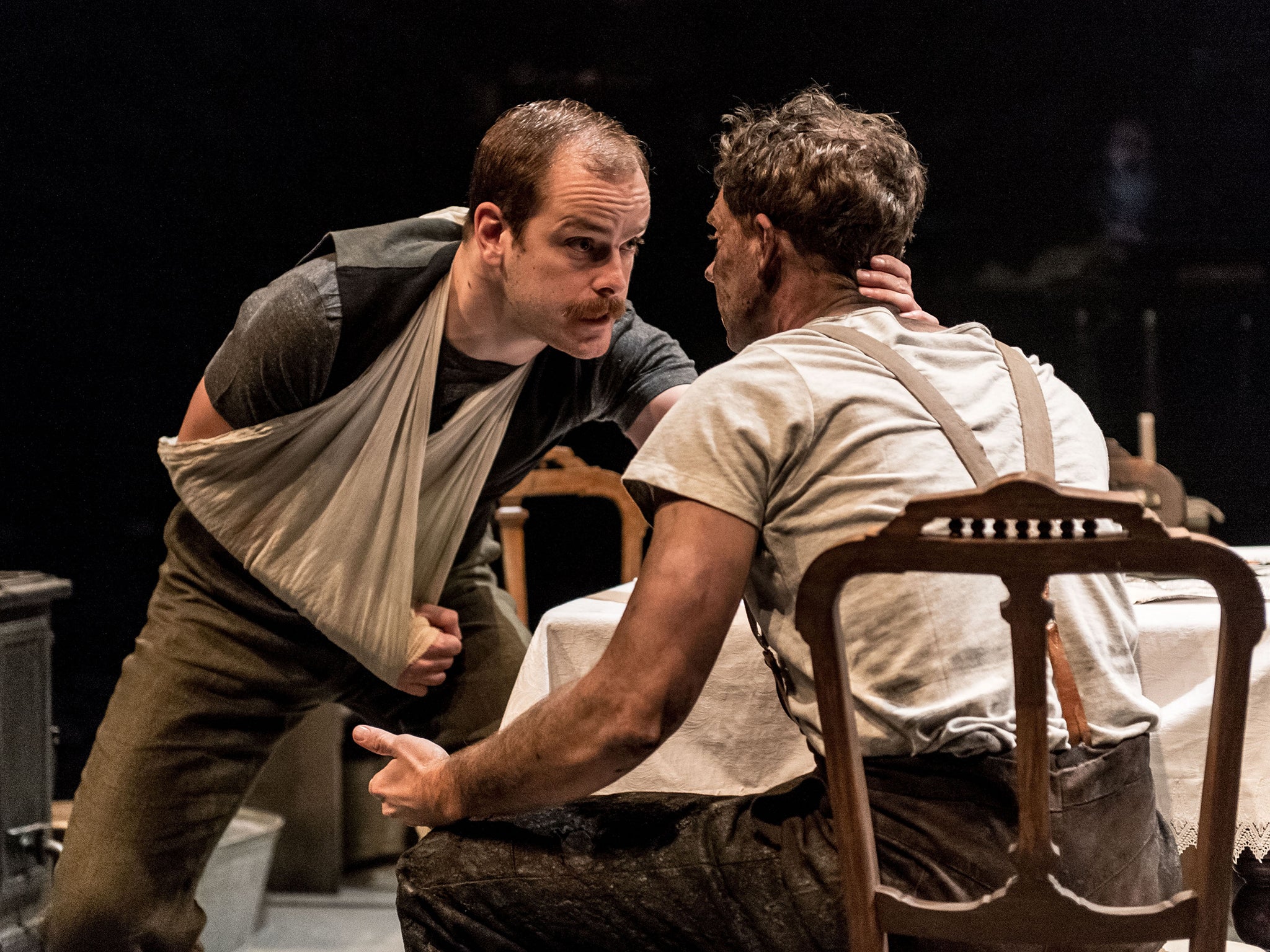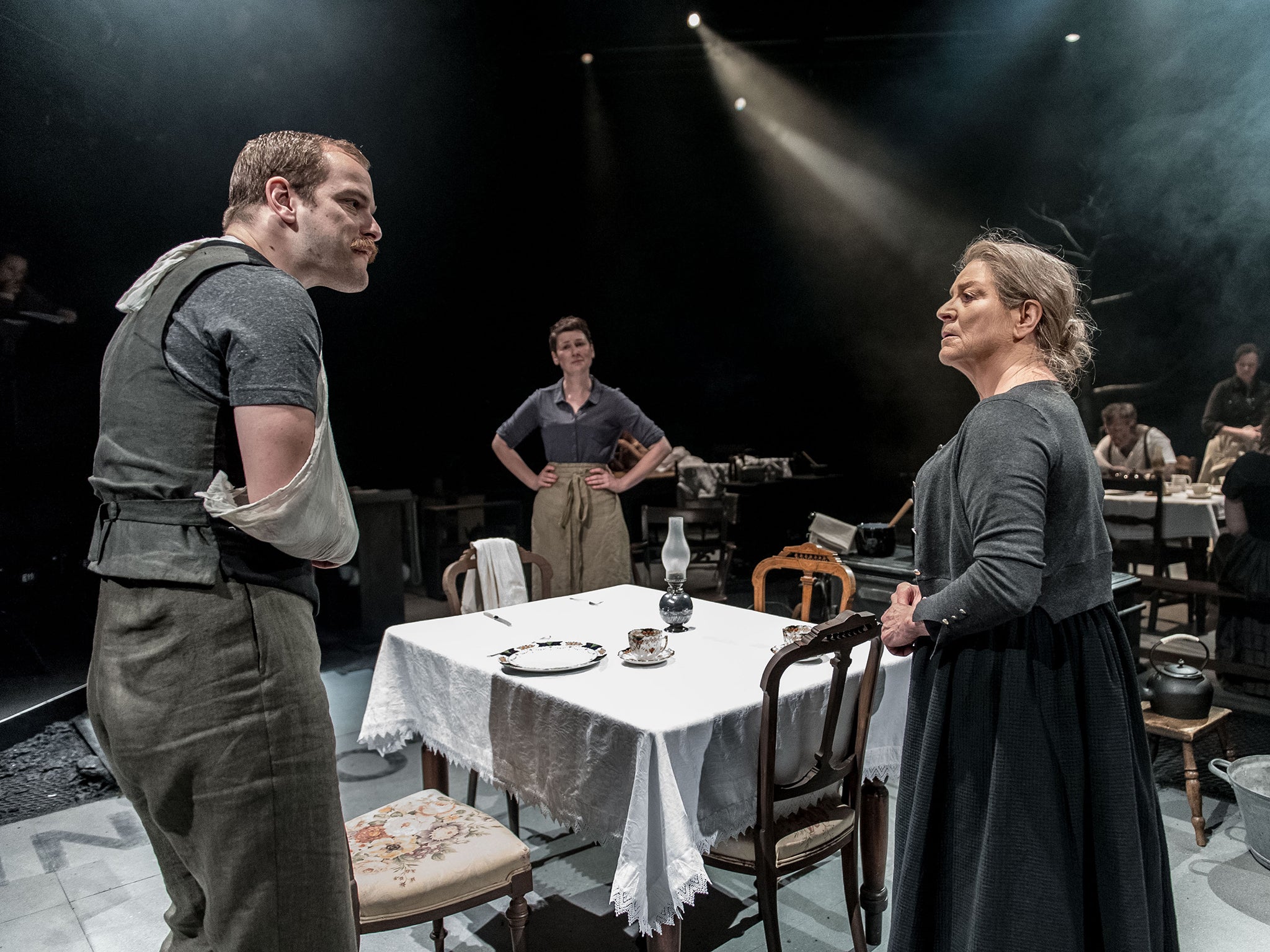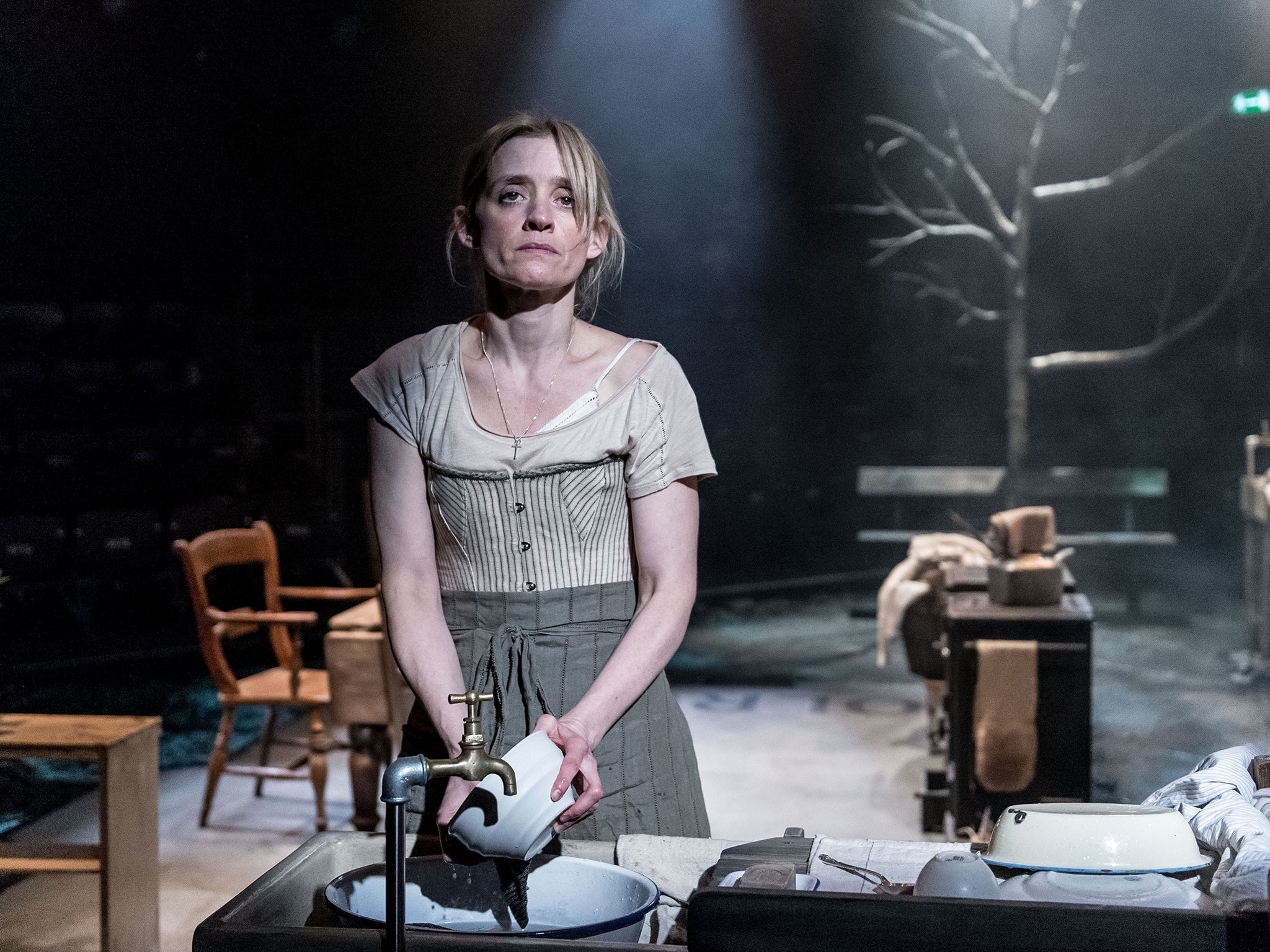Husbands and Sons, Dorfman, National Theatre, review: A magnificent evening of revelatory marvels
The work presents three of D H Lawrence's stage masterpieces, written between 1911 and 1913, as a single composite drama

Your support helps us to tell the story
From reproductive rights to climate change to Big Tech, The Independent is on the ground when the story is developing. Whether it's investigating the financials of Elon Musk's pro-Trump PAC or producing our latest documentary, 'The A Word', which shines a light on the American women fighting for reproductive rights, we know how important it is to parse out the facts from the messaging.
At such a critical moment in US history, we need reporters on the ground. Your donation allows us to keep sending journalists to speak to both sides of the story.
The Independent is trusted by Americans across the entire political spectrum. And unlike many other quality news outlets, we choose not to lock Americans out of our reporting and analysis with paywalls. We believe quality journalism should be available to everyone, paid for by those who can afford it.
Your support makes all the difference.I've always loved Alan Bennett's great joke about the hygiene crime-scene that was W H Auden's bathroom in New York. To quote from memory: “where did you wash your hands, after you'd washed your hands?” Amongst the many revelatory marvels in this magnificent, deeply attuned evening – which present three of D H Lawrence's stage masterpieces, written between 1911 and 1913, as a single composite drama – is a startled sense of how strong an influence the Prophet of Eastwood exerted on Leeds's finest flower.
We know that Bennett attended Peter Gill's landmark Lawrence revivals at the Royal Court in the mid-1960s and that, in Enjoy (1980) he wickedly parodied the scene in The Widowing of Mrs Holroyd, where the wife and mother ritually washed the corpse of previous hated miner-husband, killed in a pit accident. In Bennett's version, a certain something arises that suggests that the dear departed is perhaps not as dead as they had supposed. But you can also hear inverted pre-echos of the Auden gag in the various scenes here where a miner's grime is held against him by would-be genteel wives on a sort of “you're-too-filthy-to-use-my-lovely-towels” or, in effect, “go and use another bathroom before you use mine”.

And Lawrence hilariously anticipates the echt Bennettcomedy of forlorn social aspiration from female characters stranded in a class they'd like to think is beneath them and lumbered with a spouse who's decidedly not Henry James's idea of a fine sensibility. It's both excruciating and laugh-out-loud when Ernest (spot-on Johnny Gibbon) brags to his Oedipally possessive and domineering mother (superb Julia Ford) that a Professor has remarked on his “instinct for Latin”. The mother is impressed but manages to get in a dig at her husband. She doesn't know where such an instinct might have come but “not from the Lamberts that's a certainty.
Ben Power, the National's new Deputy Director, has interleaved the original scripts brilliantly, with great sensitivity to thematic counterpointing, contrast, and similitude. Though the plays are predictive of Coronation St, there's no feel of glorified soap opera as the evening flits around different strands and locales. The audience sits on all four sides of Bunny Christie's terrific domesticity-in-triplicate set and Marianne Elliot directs the enterprise as if it were a great piece of music (there's haunting use of a song on the gramophone), replete with shifting contrapuntal moods and orchestra colours.

The characters from the different teams meet in the rain-swept gullies; miners, drunk from the Ram, offer each other tottering support. Ann Marie Duff is heart-wringing as the pining, trapped wife in Holroyd. Louise Brealey's is superlatively conflicted, her features alternately bunched in contempt and quivering with tearful hurt, as the young wife turned Tory by her husband's ineffecuality and preference for the girl he's got pregnant. Joe Armstrong is unimprovable in the part.
All is flooded with the molten sun of Lawrence's magnanimity and tenderness. His animosities are just his loves in reverse. He has a prodigious gift for entering into all points of view. In Power's version, the proceedings gather to the brink of aking strike action. After a half-break for refuelling, I would happily have watched this quietly towering three-hour achievement all over again.
To February 10; 0207 452 3000
Join our commenting forum
Join thought-provoking conversations, follow other Independent readers and see their replies
Comments